The World Nomads Podcast: Thailand Travel Safety Guide
Thailand's scams, weird laws, hiring a motorbike and what to look out for before jumping on a boat - all you need to know for a safe but fun-filled trip
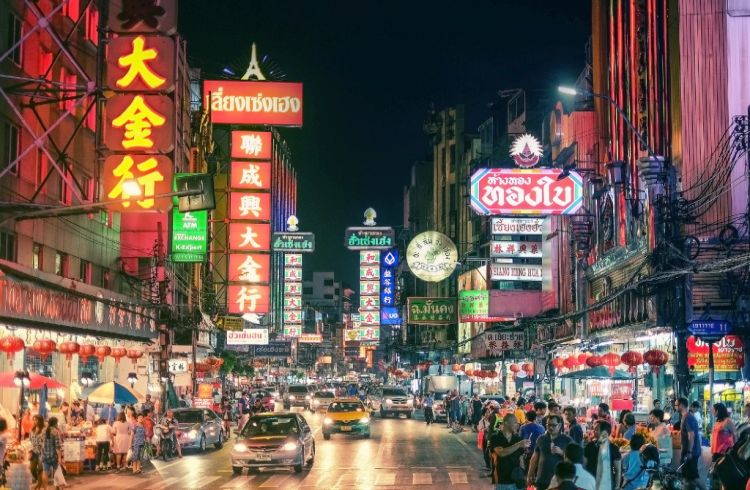 Photo © Getty Images/SAHACHAT
Photo © Getty Images/SAHACHAT
Listen Now
The World Nomads Podcast: Thailand Travel Safety Guide
In this episode, we showcase our newly polished travel safety guide to Thailand with everything you need to know about transport, scams, and rip-offs so you can have a safe and fun time in the ‘land of smiles'.
Want to read personal, inspiring and engaging stories about travel? Go here.
What's in the Episode
00:14 Welcome
00.43 Stuart McDonald from Travelfish "...As long as everyone's not looking at their phone, there's an opportunity to get to know locals as they're traveling, which I think has been a really great development, not just in Thailand, but particularly in Thailand is very noticeable."
06:36 Changes to boating laws in Thailand
09.21 When your boat sinks "... It was a couple of hundred meters and that's a long way to swim when you're fully clothed and you've got boots on and you're trying to drag your pack and the waves are bad" - Stuart Travelfish
11:41 Riding motorbikes in Thailand
14:39 Should you pay bribes
17:12 How to avoid having your drink spiked
18:12 Claire Rogers discusses solo female travel safety in Thailand "...Obviously beach resorts in Bali and Thailand, they're used to travelers and backpackers. While, if you're in the countryside, they may not see as many people. So they're just not used to how to approach you and how to talk to you, just the best way to go about things."
21:20 Females and Monks
23:58 Don't go out without any underwear on
27:44 What’s happening in the next episode
Who's on the Show
Allyson Jennings World Nomads Travel Safety Producer
Stuart McDonald fromTravelfish, an independent travel guide for Southeast Asia.
Claire Rogers - Travel Safety for Women in Southeast Asia
Resources & Links
Thailand Travel Safety Guide can be downloaded here. The media release highlighting changes to Phuket boat safety.
Scholarships Newsletter: Sign up for scholarships news and see what opportunities are live here.
Read more about Thailand’s bid to become an LGBTQ travel hotspot.
Want to Talk to us?
We want to hear from you! If you have any travel insurance questions to Ask Phil, want to give us feedback on the episode, or have suggestions for topics you'd like us to cover, email us at podcast@worldnomads.com
About The Podcast
Explore your boundaries and discover your next adventure with The World Nomads Podcast. Hosted by Podcast Producer Kim Napier and World Nomads Phil Sylvester, each episode will take you around the world with insights into destinations from travelers and experts. They’ll share the latest in travel news, answer your travel questions and fill you in on what World Nomads is up to, including the latest scholarships and guides. The World Nomads Podcast is not your usual travel Podcast. It’s everything for the adventurous, independent traveler. Don’t miss out. Subscribe today.
Want to Re-publish This Episode?
Copy this code onto your web page or blog:<iframe width="100%" height="200" src="https://player.whooshkaa.com/player/episode/id/264242?visual=true&sharing=true" frameborder="0" style="width: 100%; height: 200px"></iframe>
Speaker 1: Welcome to the World Nomads Podcast, delivered by World Nomads, the travel lifestyle, and insurance brand. It's not your usual travel podcast. It's everything for the adventurous, independent traveler.
Kim: Welcome to a bonus episode of the World Nomads podcast, coinciding with the release of our new and improved safety guide. The guide is full of tips, hacks, advice, warnings, and travel alerts, so you can have a safe but fun time in Thailand. Now, fellow podcast host, Phil. Hello, Phil.
Phil: G'day.
Kim: And travel safety producer, Allyson. Hello, Allyson.
Allison: Hello.
Kim: They've spent months toiling over the refresh and they're going to share a few of the highlights with us in this episode but, first, Stuart McDonald runs Travel Fish, an independent travel guide to Southeast Asia which, obviously, includes Thailand.
Phil: Stuart, you know, Thailand is an amazingly popular destination. You must get a lot of traffic to your site, people asking questions about Thailand.
Stuart: Yeah, sure. It's definitely the most popular part of our site, both for our new visitors who have never been there before, and people going back for their fifth, tenth, twentieth trip.
Kim: Yeah, it's one of those places that you don't tire of easily. Even if you've been to Phuket three times, you can certainly do a fourth.
Stuart: Speak for yourself, I don't know about four times in Phuket.
Kim: You get what I'm saying.
Phil: Yeah, I know what you mean.
Stuart: But yeah, it's the kind of country that people just go back to again and again and again.
Phil: What's your favorite bit of Thailand then, Stu?
Stuart: I prefer back in the northeast along the Mekong River. Preferably where it isn't as heavily touristed. Most of the islands in Thailand now are pretty well developed, so I try and, like to get to areas a bit further, I feel a little bit more off the beaten track and just get a scooter and go exploring.
Phil: When was the first time you went to Thailand, how long ago? I'm gonna get you away from your age now, aren't I?
Stuart: I'd say the first time in '93.
Kim: Does it attract regularly, travelers from the UK, from Europe, from America?
Stuart: Yeah, absolutely. Not so much from the States, but Thailand has always been very popular with Europeans, particularly the French and Germans. The Brits have a very strong, contingent down the islands and there's obviously a lot of expatriates who were from Europe in a previous life.
Australians are there as well, lots of Kiwis. A big change over the years I've been going there is now you see a lot more Thais traveling there. When I first went there, to run into a Thai backpacker who was staying in a guest house was really peculiar. But now that's really common. I think that's a really good thing because, back in the day, unless you made the effort, the only kind of interaction you would have with a local would be you're buying a beer or booking a guesthouse or whatever. But now you're just as likely to come across them in the common room as somebody from Argentina and Spain.
As long as everyone's not looking at their phone, there's an opportunity to get to know locals as they're traveling, which I think has been a really great development, not just in Thailand, but particularly in Thailand is very noticeable.
Kim: Why the shift though?
Stuart: Growing middle class, more money, and just better information out there in the Thai language, for traveling in that country. There's a lot of Thais now traveling around, particularly younger people, and it's great
Phil: From an Australian perspective, Thailand really is the new neighbor that's sort of backyard, and so many Australians travel there that they've become a little bit blasé about what to expect when they get there. In terms of safety I'm talking about here, they truly built their own backyard and maybe are not paying the kind of attention they ought to do. Would you say that's true? And how do other people, like those from Europe, how do they react to Thailand from a safety perspective? Is it perceived as a safe place, or a bit on the dodgy side sometimes?
Stuart: I think there are perception and reality. I think genuinely speaking, Thailand's a very safe place to travel to. We always say you have a packing list which is telling people what to pack, how many sets of underwear and how many t-shirts and all that kind of stuff. But really the first thing you need to pack is your brain, and I think a lot of people, like you say, they arrive and they're really just not taking into account where they are, and you are in a different country and things do work differently. Not necessarily in a negative way, but still, things can be quite a big difference. But that doesn't necessarily make it unsafe, you've just got to take a bit more personal responsibility and making sure that you're taking the safety precautions, which say, in Australia, you would have to because it's against the law. Where in Thailand and elsewhere in Southeast Asia, it's a bit more ... well yeah, you should wear a helmet, you shouldn't be drunk, but nobody's really gonna do much about that, so it's up to you not to do it.
Kim: Well the full moon party always makes news, whenever that happens there's always some idiot that does something stupid.
Stuart: Yeah sure, but if you've ever had a beach festival in Australia with 10,000 people there and a lot of stuff that you maybe wouldn't come across normally, you'd have some pretty outrageous behavior as well. I haven't been to a full moon party in a couple of years, but yeah, it's personal responsibility, watching what you do, watching your drink, that kind of thing. I think in the scheme of things, I don't do too bad with that particular event.
Phil: Because somebody's serving you a bucket drink, it doesn't mean you have to drink the whole thing.
Kim: Oh really? Who would've thought!
Stuart: Yeah, exactly, there's not a law that you have to drink through it. You read stories about the situations people get themselves into, and you think, well what were you thinking? And often they just weren't.
Phil: Just out in the last 24 hours up to recording this, there was, in the wake of that terrible tragic boat accident where a lot of Chinese tourists drowned, the Thai government, and when I say Thai government you mean the generals in suits these days, around the jo
Stuart: Yeah, the [inaudible 00:06:56].
Phil: Yeah. But, they have just announced that they are going to start checking on vessels to make sure they are seaworthy before they're allowed to be registered. And tourists spots that are going out are going to have to register, put in a plan like a flight plan for a boat. It's kind of good to see those changes coming through as well.
Stuart: Yeah, absolutely. In that particular case, I think some of these laws are already actually on the books. It's one thing for a general to get up and say we're gonna do this, or we're gonna do that. They're under tremendous pressure to do something because there's been quite a large backlash from mainland Chinese groups. So they've got the stick that they're trying to get some action out of the [inaudible 00:07:43]. But it's one thing to say everyone's gonna have a life jacket or there's gonna be a boat manifesto, whatever. It's another thing to enforce it. So when they start enforcing it, it'll be a great step forward.
Kim: Well they do say it's effective immediately, they say that its boat operators will be swiftly punished with the maximum penalty. But in addition, you will ... any boat that you want to build, the blueprint has to be submitted, and as Phil said, to make sure it is actually a seaworthy boat.
Phil: A seaworthy boat!
Stuart: Seaworthy. Well that's reassuring, isn't it?
Phil: Yeah ...
Kim: Well it is.
Phil: No more leaky boats allowed that's a good [inaudible 00:08:23] there.
Stuart: Right, yeah, exactly.
Kim: We can be as suspicious as we like, but it makes you feel a little safer, doesn't it, when you read those things in black and white?
Phil: One of the things that we say on the nomad site and in our safety guide when you get on the boat, ask them to show you the life jackets. If they can't show you the life jackets, they probably don't have any, go get on another boat that does.
Kim: Yeah.
Stuart: Yeah.
Phil: It's that sort of personal responsibility.
Stuart: I think this is a big thing, also not- around the same time as that accident in Phuket, there was the tragedy on Lake Toba in Sumatra where there was over 100 dead. I think it was 200 actually. Now that boat was overloaded to a ridiculous extent. You really need to say to people, and this is something that we say, if the boat is overloaded, if the boat driver is obviously stoned or drunk, if there are no life jackets, don't get on. Just don't- like I've been on a boat that sunk. I've had to swim from the boat to shore, it wasn't very far, but I would prefer not to have had that experience. It's a very difficult situation to be in, but our boat was overloaded, our boatman was stoned, what were we thinking? I was twenty-something, I'm like yeah whatever, it'll be okay.
But you really need to take this kind of responsibility in your own hands. Because the state won't do it.
Phil: Can you tell us a bit more about that, that must've been absolutely frightening?
Stuart: It was in far southern southwest Thailand, and we're taking a long tail boat from one island to another, in quite bad weather conditions. The boat was overloaded, and there were too many backpacks and too many people, and the boatman wasn't really of this earth. I know it was about 200 meters offshore or something like that, and the boat sank. But it was a couple of hundred meters and that's a long way to swim when you're fully clothed and you've got boots on and you're trying to drag your pack and the waves are bad, and all of that kind of stuff.
There's a famous saying where they say everything was going fine until it wasn't.
Kim: Imagine if you were smashed, like you had a skin full of alcohol, too. That just makes the whole swimming to shore even more difficult.
Stuart: Exactly.
Phil: I read in another main that I saw, just the other day, it's ... one day your life is gonna flash in front of your eyes, make sure it's worth watching. And I think you've probably done that Stewart?
Kim: I love it.
Stuart: Yeah, I've had a few moments.
Kim: So in summary, pack your brain.
Stuart: Yeah, I think, pack your brain is the main thing. There are all sorts of ... you could pack a medical kit and this and that, the easiest way to reduce your risk profile when you're traveling in Thailand, is to wear a helmet, is to get a motorcycle license before you go. That's 90% of the problem gone.
Kim: Thanks for that, Stewart, so let's pick apart some aspects of the guide with Phil and Allison, and perhaps to pick up here Stuart left off and ask about riding motorbikes and scooters, obviously a helmet.
Phil: Absolutely, it is the law in Thailand that you need to wear a helmet. It's also a requirement of, well, nomad's travel insurance that you're wearing a helmet. But the other requirement, Allison, would be, you gotta have a license, right?
Allison: That's correct. You must have a license, in fact, a motorcycle license from home, and an international driver's permit in order to ride legally in Thailand.
Kim: Wow, so just like hiring a car.
Phil: That's right, you don't magically acquire a motorcycle license by flying into Bangkok, and then international driver's permit, an IDP, is not license, it's a translation of your home license into other languages. So it doesn't, again, magically bestow upon you the ability to ride a motorcycle or license to do so. It will only say that you are licensed to drive whatever it is you've got.
Kim: So you've got to know how to ride a motorbike, simple.
Phil: Yeah, you gotta know how to ride a motorbike.
Kim: So once you've got your motorbike, so we've assumed you got your license, you've got your international driver's license as well. What are the roads like?
Allyson: Put this way, if you're a beginner, Thailand's not the place to learn.
Kim: Why?
Allyson: Let's just say they've got a very high road toll per capita, in fact, they're just behind Libya in terms of road statistics fatalities. Between 2016 and 17 in the new year period, over 400 people were killed in one week.
Kim: Four hundred people in one week! These are people that have got licenses!
Allyson: Yeah, imagine so, but then there's probably a lot of people there who ride without them.
Phil: The regulatory authorities don't check stuff out as often as they do here. So you can probably ride around without a motorcycle license for quite a while. If you're gonna get stopped by a policeman, then you just have to pay, we'll get to this in a minute, you just have to pay an on the spot fine, and you'll be allowed to go on your way. But that doesn't mean, because you're allowed to go on your way, doesn't mean that you're licensed. It just means you've been allowed to continue riding illegally.
Kim: Well, in the Destination Podcast last week with Cassie, on Vietnam, Cambodia, and Lao, she mentioned ... the bribes, the [inaudible 00:13:54]. Thailand is part of southeast Asia, and obviously, a little bit of, you like this one, Phil, don't you?
Phil: I do, that little bit of backhanded air, no problem. We're all doing hand signals as well.
Allyson: Should be right. A little bit of silence money.
Phil: Yeah. Bribery, corruption I suppose are just really what it is. Police in Thailand
Allyson: Yeah, a little bit of extra interview money to spend on the family and everybody else. A little bit of gig money on the side. Bottom line is, don't be a dumb farang and get busted.
Phil: Yeah, well you're probably gonna get stopped anyway. Look, and I don't know ... how you feel about this, Kim, ethically? How do you feel about-
Kim: I think it's like giving a donation.
Phil: Okay.
Kim: You know, in Australia, we have a giving tree at Christmastime where we take wrapped gifts and we put them under the tree and they go to people who can't afford them. If they're struggling with their family and trying to get through the festive season, what's
Phil: Couple bucks, sometimes, maybe five bucks.
Kim: No, [crosstalk 00:15:38] five
Phil: Ten bucks by the time you've converted it, it's not a lot.
Allyson: Not an issue.
Kim: It's about $200-500 baht, yeah not an issue. But are they bribing in other areas, as well as on the road?
Phil: Uh, yes, there are ... you could be invited to speed up the process by making a donation for tea money or something like that.
Kim: Special donation?
Phil: We can't, it's illegal, basically. It boils down to, you're paying a bribe, you're being, participating in corruption, so it's illegal. A number of people will have issues, ethically, with doing that. What we advise is, try not to think of it as a bribe or corruption, but paying honor and respect to the official that you're dealing with.
Can I just say though, by the way, because I'm gonna have to do this because this is a brand podcast. We do not condone illegal activity of any type.
Kim: But I'm not-
Phil: The other thing you'll find as well, don't forget that it is a military junta running Thailand, and they are well aware of how bad the corruption is and what it does to the ... public perception of the country. So they're actually cracking down on it
Allyson: Insane that prostitution's illegal in Thailand, yet you can make a lot of money off it.
Phil: I know, knocked me there with a feather when I heard that one, I have to stay.
Kim: It's booming, is it booming industry?
Phil: Well, yeah. But it is actually illegal.
Kim: We'll chat to Claire very shortly about being a female traveler on your own in Thailand. Before we do that, drink spiking.
Phil: Yes, a problem everywhere in the world, but also quite common in some of the Sois [crosstalk 00:17:26]
Allyson: Soi Bangla.
Phil: And backlands of the-and the nightclubs around Patong and Bangkok, and Bangkok and those places. You need to protect yourself from drink spiking. Men and women, because it does happen to everybody. And there are ways of making sure you don't get spiked.
Allyson: It's buying your own drink? Never leave your drink unattended, finish your drink before you go to the toilet, as well.
Kim: So pick your brain, the stuff that you would do in any city.
Allyson: Exactly.
Kim: Does the moonshine kind of business stretch into Thailand, you know, the-
Allyson: There is bootleg alcohol, it does happen, but it's a case of where you're getting, you know, your drinks mixed, check the bar is using a reputable brand of alcohol, rather than the unlocked bottle. If it looks sus, don't take it, don't drink it,
Kim: Tips for men and women, but Claire Rodgers has written an article for us about solo female travel safety in Southeast Asia, so I reckon that's a pretty good time to hand things over to you, Claire.
Claire: It is safe, would say ...
Phil: But why do you say that?
Claire: For the most part I've traveled solo through Asia, I've also traveled with other people, and I have felt safer when I'm with a guy. As a female, you do get a little bit more attention. Which usually it's fine, if you're just confident and know what you're doing, you'll be fine. But there are times when it can be uncomfortable, but I think it's fine, it's just more at nighttime, you just need to be a little bit safer. Obviously don't walk around by yourself. I always say dress on the more conservative side, understand the culture of the place you're in, and you should be fine, if you're a little bit more educated and have read up on things, then have an understanding of the place you're in, then it is safe.
Kim: It's been suggested that, with anything, you just pack your brain clear.
Claire: Yep, yeah, I would say that. Just read up. Obviously beach resorts in Bali and Thailand, they're used to travelers and backpackers. While, if you're in the countryside, they may not see as many people. So they're just not used to how to approach you and how to talk to you, just the best way to go about things.
Phil: I often, because I write some of the travel safety stuff for the World Nomads site, I often feel uncomfortable saying to women that you should dress conservatively. Because ... in an ideal world, you should be able to-
Kim: Wear what you like.
Phil: Wear what you like and nobody should be able to tell you. So how do you feel about that when you're traveling, is it ... respect or do you begrudge it a little?
Claire: Obviously you'd like to wear what you wanna wear. I'm from Australia, I'm used to wearing shirts and a t-shirt out in summer. I think it just ... places like Thailand, they are just used to people dressing a little bit more conservatively, and I found when I do dress more conservatively, you get less attention like that. There have been times, especially when you're in your bathers, and I'm used to wearing a bikini in Australia, but when you wear something a bit more conservative, there's just less attention. It would be nice to be able to wear whatever, but I think you just need to respect the country that you're in as well.
Kim: So what's conservative, a one piece, is it?
Claire: Well yeah, I guess it's a hard line, isn't it? Bathers are pretty revealing. But even when I have worn, say, pants and a jumper, I've still got some unwanted attention.
Phil: I have the same problem when I'm wearing my Speedos, Kim. All the unwanted attention I get there.
Kim: Pretty sure you don't, really sure you don't. Allyson has suggested that I ask you about females and monks?
Claire: Yep.
Kim: What are the rules there?
Claire: You're not meant to touch a monk as a female, that's a no-no. Obviously, you can talk to them, I've been in temples and places where they've come up and offered to give tours cause they wanna practice English. I guess you're not meant to look directly at them, you're meant to be at a lower level to them. For the most part, they love talking to people, and learning English, practicing their English, that's what I've found.
Kim: It also suggests, in the guide, not to sit next to monks on public transport, look out for monk only areas in waiting rooms, women are not welcome in some temples so check the signs.
Claire: Yep.
Kim: And if you pass a monk on the street, let him pass by you first.
Claire: Yes, yep.
Kim: Lot to think about.
Claire: That is correct, yeah.
Phil: I'm all for showing respect for wherever you are, it's just fine, but ... that's sort of ... [crosstalk 00:22:19]
Kim: Kowtowing?
Phil: Yeah, a bit. Know your place, get out of the way, the monks, girls. What's, how do you balance within yourself that nexus between everybody's equal and these strange patriarchal rules. How do you deal with that internally?
Claire: It all comes down to understanding and reading things about the culture and you understand. At times you're a bit like, oh, I need to really be checking myself, constantly aware of all these things. But, you've got to respect it. That's their country, that's how it's done, so that's just how I think about it. I don't take anything personally.
Phil: Yeah, I think that's-
Claire: It's just the culture.
Kim: Well the guide says that feminism hasn't cemented itself in Thailand and in that society.
Phil: Nope.
Kim: So, just as there are Western men who think all Thai girls are interested in sex, there are Thais that think the same [crosstalk 00:23:20] of Western girls.
Phil: Of Western girls.
Claire: Yeah, yeah.
Phil: Because of the way they dress sometimes, as well.
Kim: But the point of this podcast is to share the guide and how it's been refreshed, but we don't wanna scare people off from traveling there.
Phil: Oh no, no.
Claire: No, no. It's great. I've loved, I think I've been to Thailand three times now and I've loved it every time. It's a great country to travel, yeah.
Kim: She's Claire, and we will share that article in show notes, but we wanna touch on, before we go, strange laws, the royal family, and bribing.
Again, in the Destination Podcast, when you were hooking this particular episode, enticing us to listen, make sure we subscribe and download. You mentioned something about making sure you wear your undies.
Phil: I know, how weird is this law? It is illegal to go out in Thailand without underwear on.
Kim: Man and Woman?
Phil: Absolutely.
Allyson: No commando.
Kim: No commando?
Phil: No, but I wanna know who checks. Has anybody ever actually been arrested for that?
Kim: Podcast on Nomads.com.
Allyson: And who determined this law, did all of a sudden somebody see somebody with no underpants and go, alright, that's not acceptable.
Phil: I don't know. [crosstalk 00:24:30]
Kim: That's [crosstalk 00:24:29]
Phil: I'd love to know an explanation of why it's there.
Allyson: You also can't drive a car shirtless, either.
Kim: But you can walk around shirtless?
Allyson: Apparently so.
Kim: Alright. The royal family. Oh, any other strange laws before we move on to the royal family, other than nudity?
Allyson: No-
Phil: No, to just be respectful as well, there are areas of Thailand which are still quite conservative in their values. Just be respectful, like talking about ... put a shirt on when you leave the beach, and make sure you do cover up when you go into a temple.
Allyson: Same with the girls, cover it up. Don't walk around in your bikini.
Kim: Alright, let's get
Phil: They're a very beloved family, long tradition of great respect for the royal family, and that's actually built into their laws as well, the Lèse-majesté, I think, here's my terrible Latin, I think.
Allyson: Started in 1908.
Phil: Where it is illegal to be disrespectful or to insult the royal family, particularly the king. And that can mean ...
Allyson: Not even stepping on a Thai baht note if it flies away, or giving the king some fancy glasses in a Gandalf beard.
Phil: No drawing on the currency.
Kim: Before we wrap up, just very briefly, scams too.
Allyson: God, where do we start?
Kim: If you look at, you will want to download the Thai safety guide, there are quite a few, from [inaudible 00:25:48] scams to gym scams to photograph scams.
Allyson: Yeah, fancy bracelet scams, fake baht you name it, it's all in Thailand.
Phil: The birdseed scam is a classic, it's in a particular square near the Grand Palace, near some of the more famous [inaudible 00:26:03] the temples there. There are people who you can find using bird, feeding the pigeons there that got bags of seed and will hand one of the bags of seed for you to join in with this lovely ritual of feeding the birds, and then you're gonna get charged, so that's an [inaudible 00:26:21] for the birdseed you just used.
Allyson: Then you've got photo scans where you often see in the nightclub areas, people with animals, and often those animals are being poorly treated. It's really really bad, I need to get a photo of these things.
Phil: Bad idea for the animal, but you're also gonna get charged for taking the photo.
Allyson: Yeah, exactly. Same with the ladyboys as well. It does happen, you often have groups of ladyboys who wanna get a photo with you, and then they'll ask you for money as well.
Phil: Yeah. Can I just say, I've been to Thailand a couple of times, I really like the place, it's
Allyson: We're delving into the contents of the new and improved Thai safety guide-
Phil: That's it.
Kim: Beautiful, how do we get a copy of it?
Allyson: You can download it from WorldNomads.com.
Kim: Also just briefly, it's a really great place to travel to if you're in a same-sex relationship or LGBTQ. In fact, Thailand is making it big to become LGBT+ tourism hotspot.
Phil: Fantastic.
Allyson: So nothing to worry about there. Thanks for that, guys.
Phil: Yeah, that's alright. [crosstalk 00:27:38] Download the guide, folks.
Kim: You can access the World Nomads podcast on Stitch or Google Play, iHeartRadio, and iTunes this week. Rate, share and subscribe. Next week we're featuring another of our amazing nomads, James Bachman, he's a documentary and editorial photographer, and he's inspired most by the mountains and the sea and at the moment, he's living off his 96DR-650, and he's riding from Alaska to Patagonia. Vroom, vroom!
Phil: Quite a guy.
Kim: See you then. Bye!
Phil: Bye!
Allyson: Bye!
Speaker 1: The World Nomads podcast. Explore your Boundaries.
Related articles
Simple and flexible travel insurance
You can buy at home or while traveling, and claim online from anywhere in the world. With 150+ adventure activities covered and 24/7 emergency assistance.
Get a quote



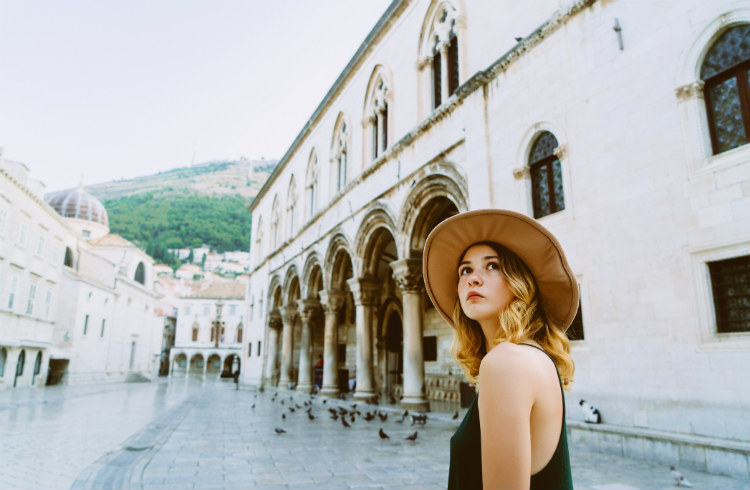
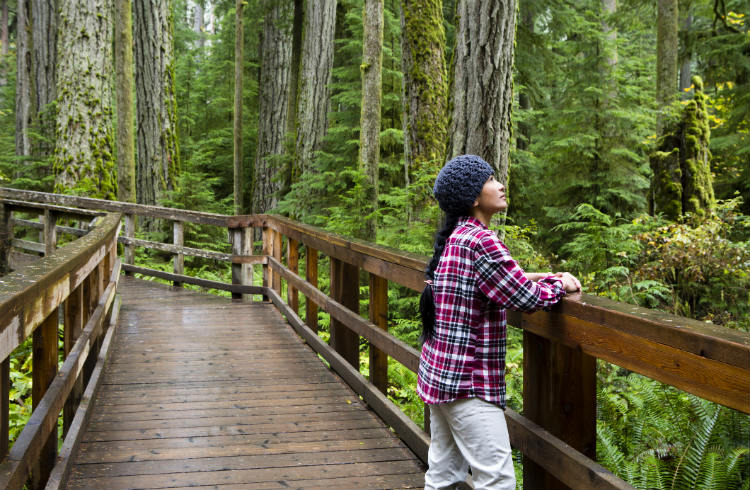
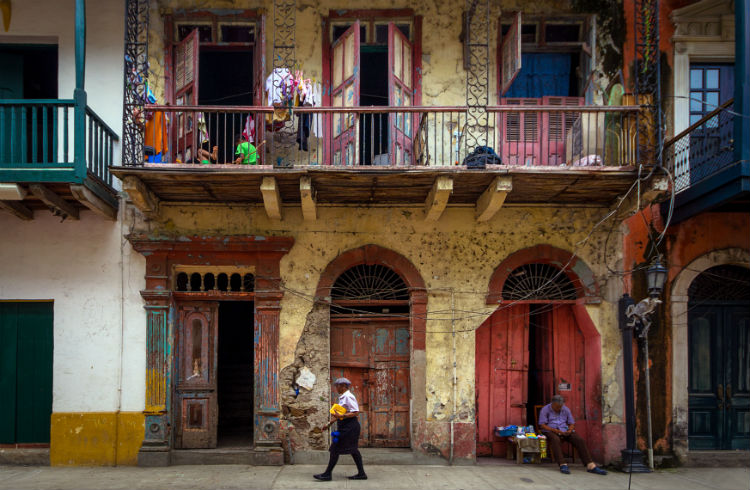
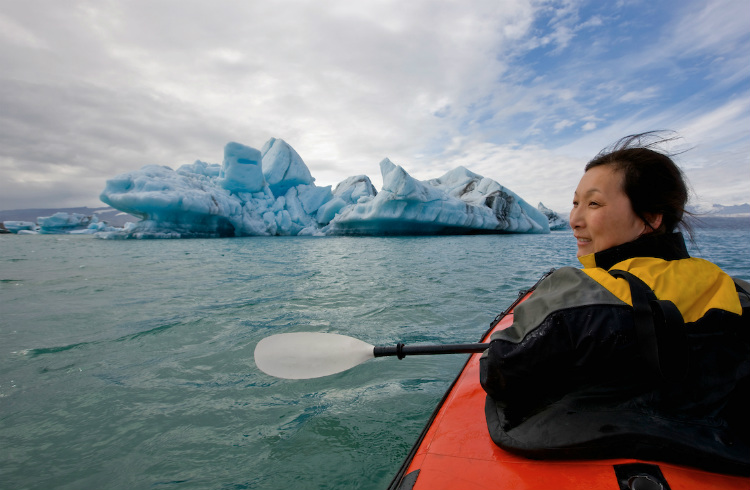
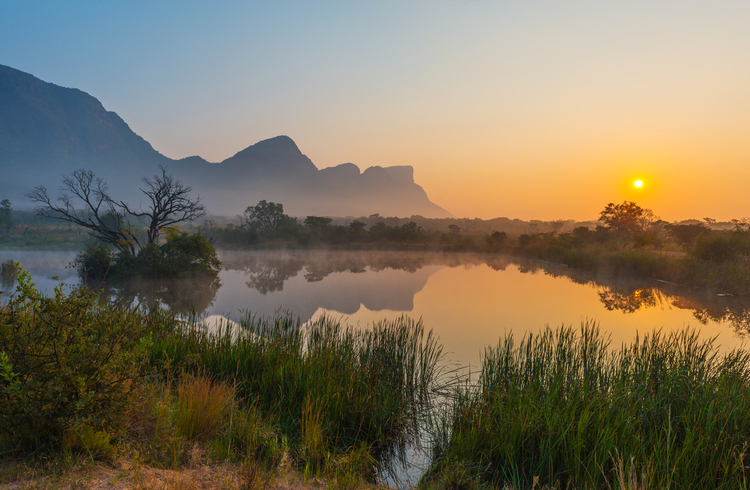
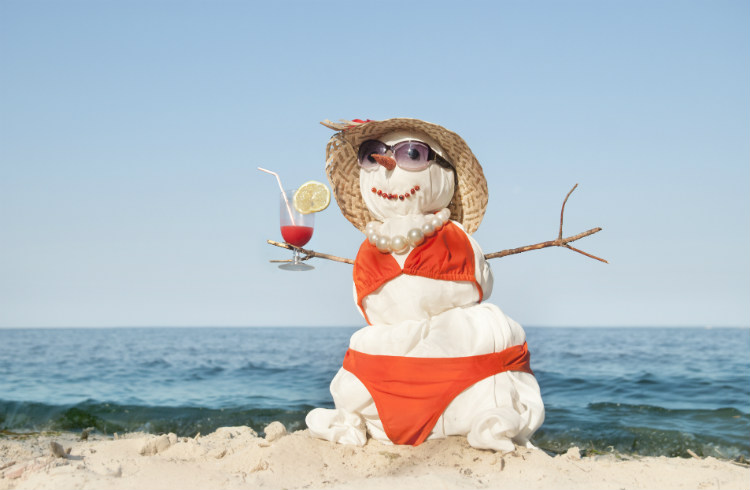
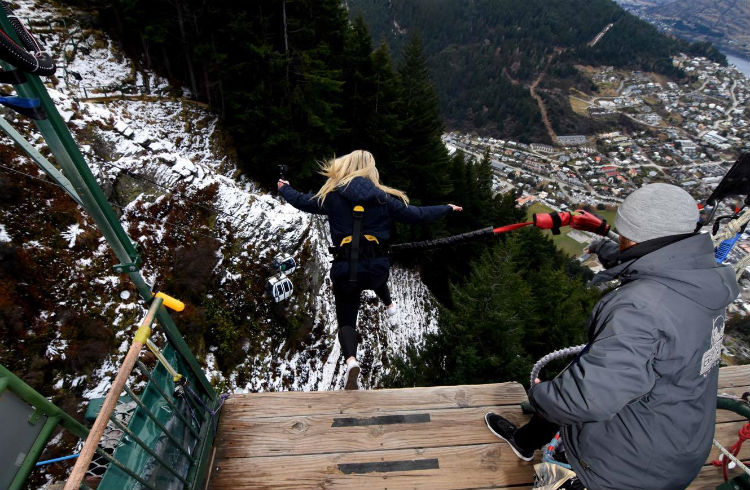
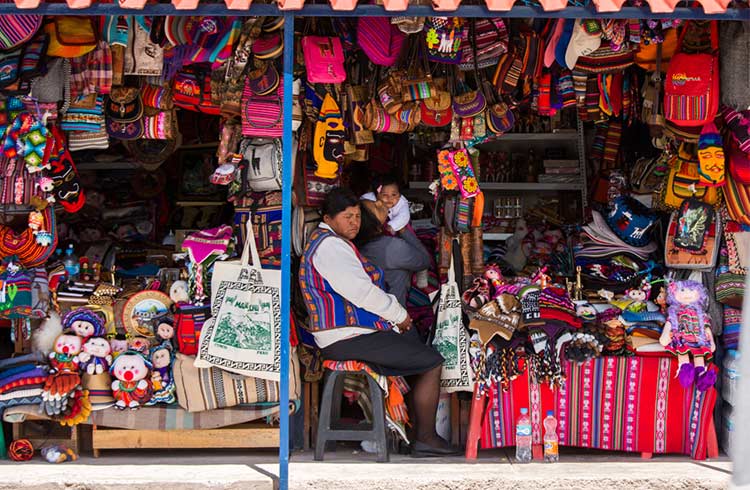
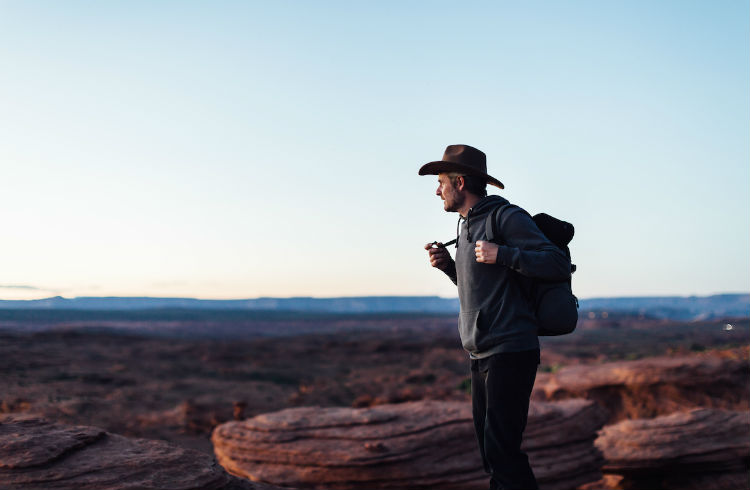
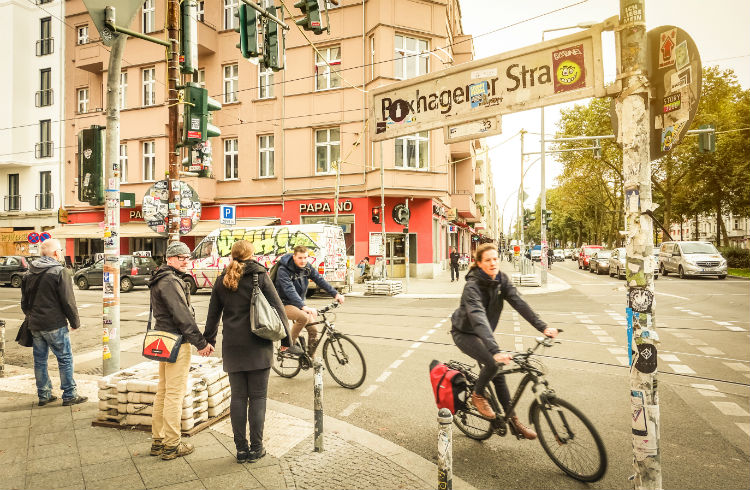
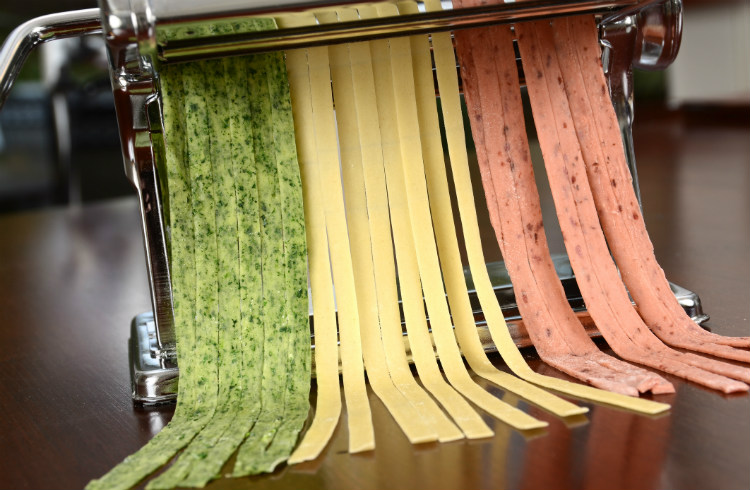
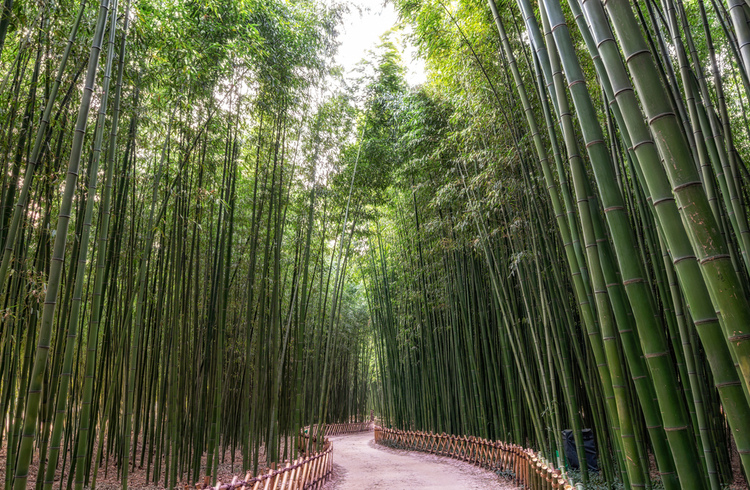
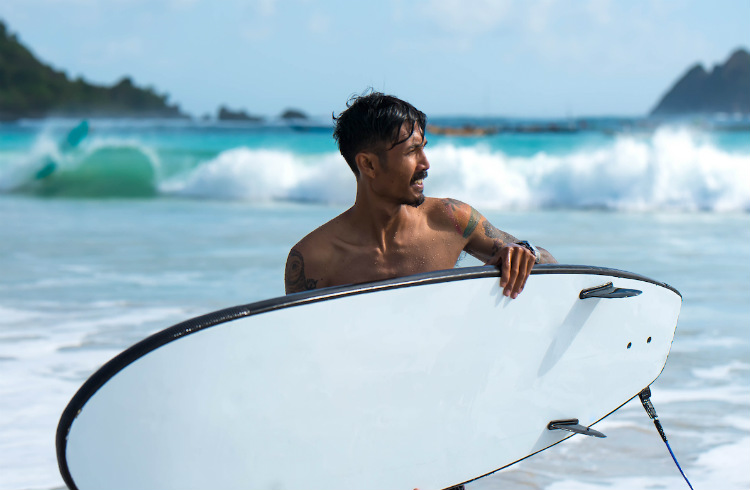
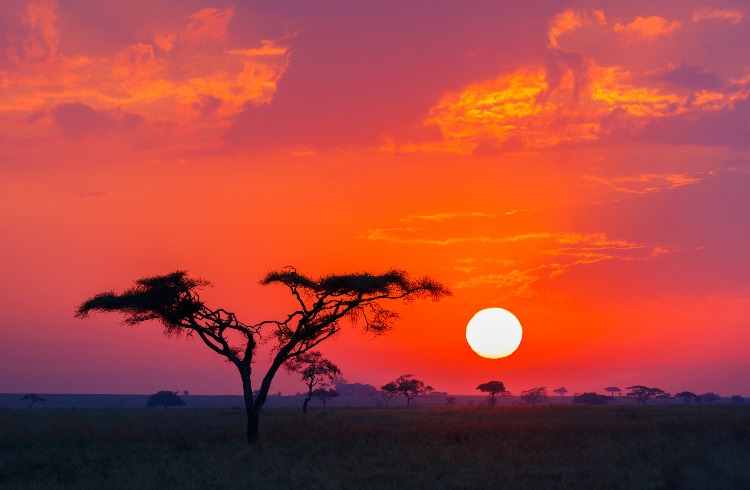
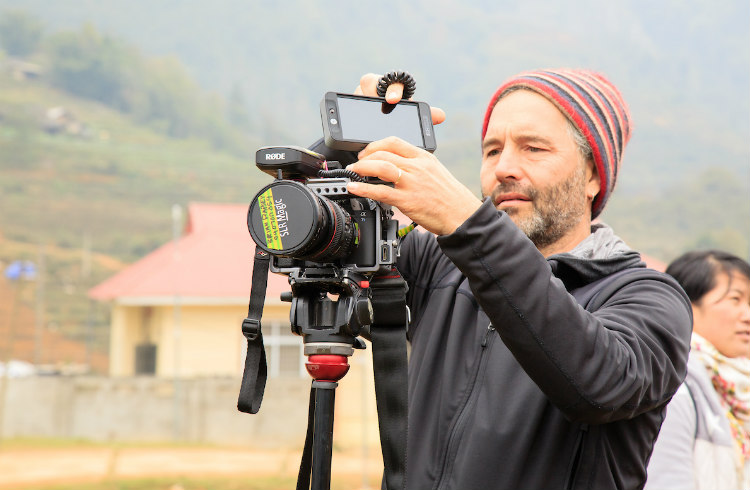
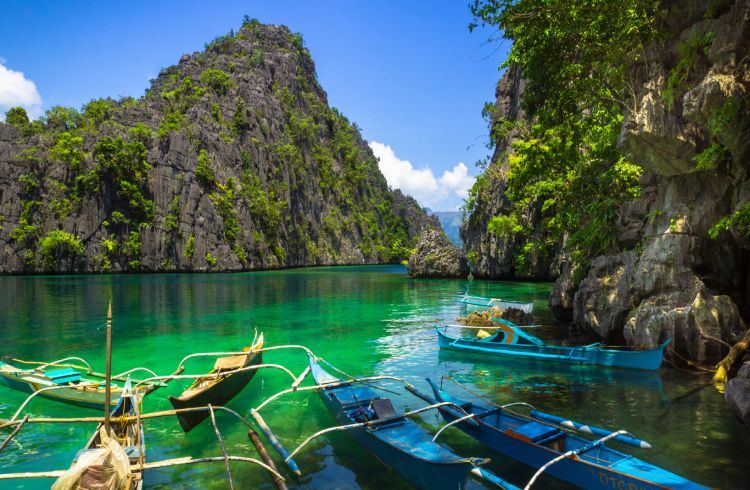
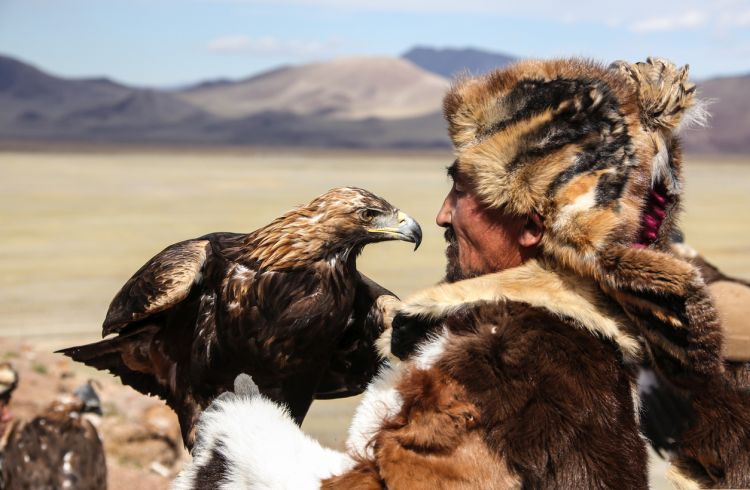
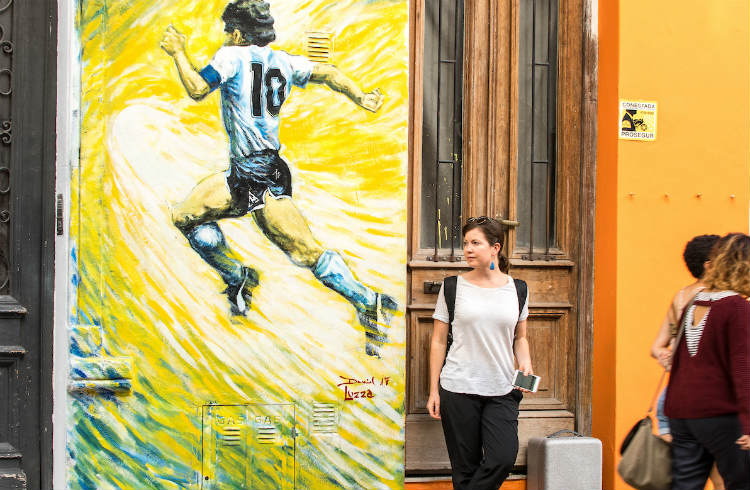
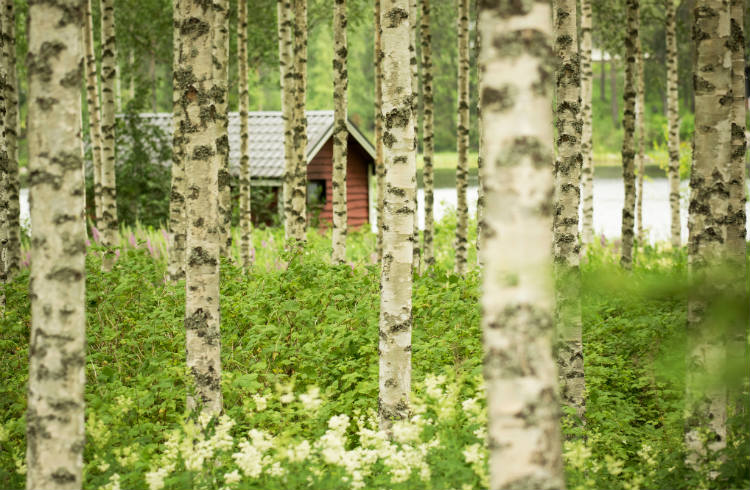

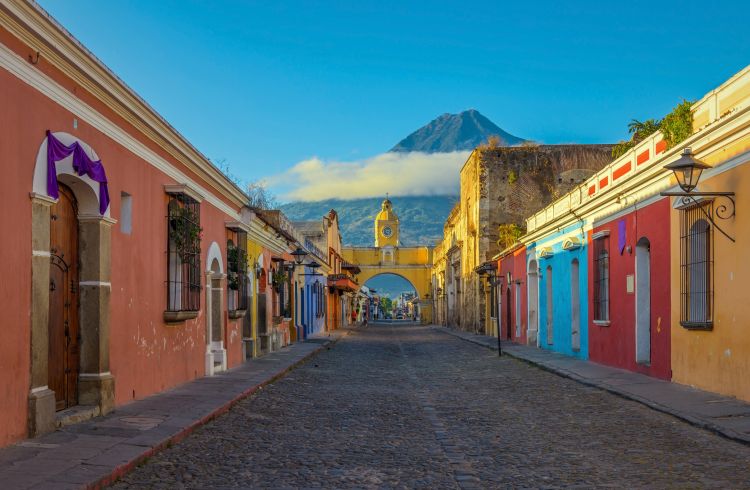
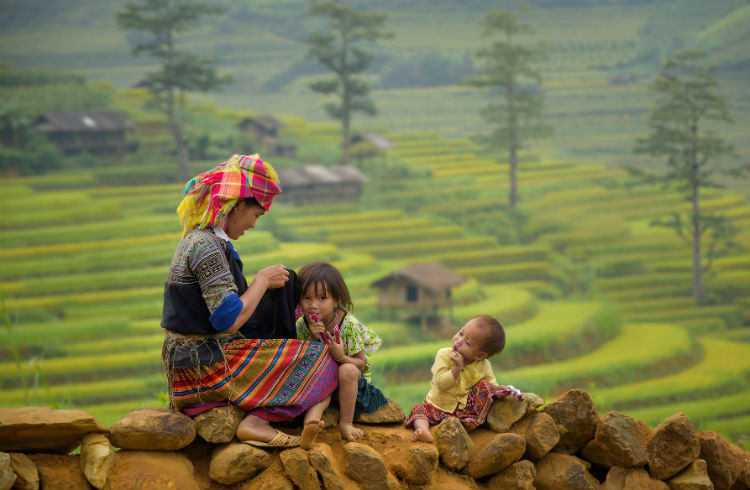
No Comments